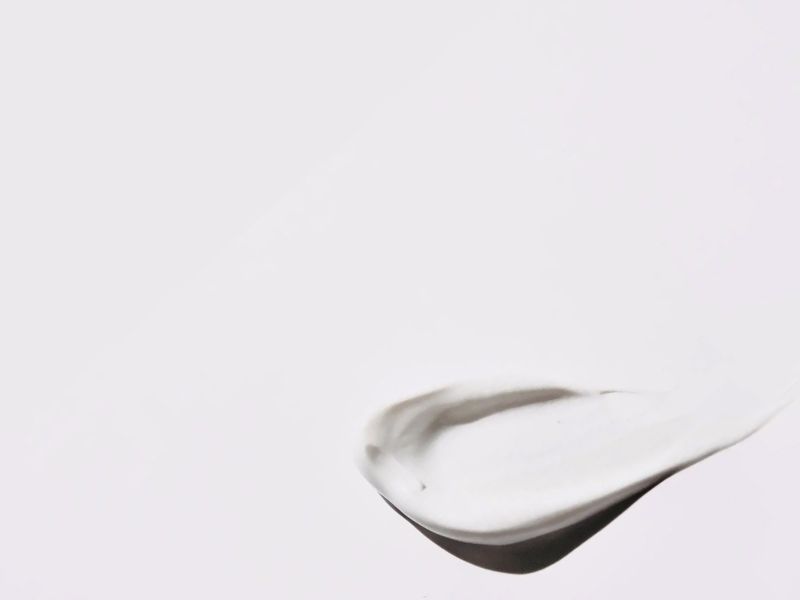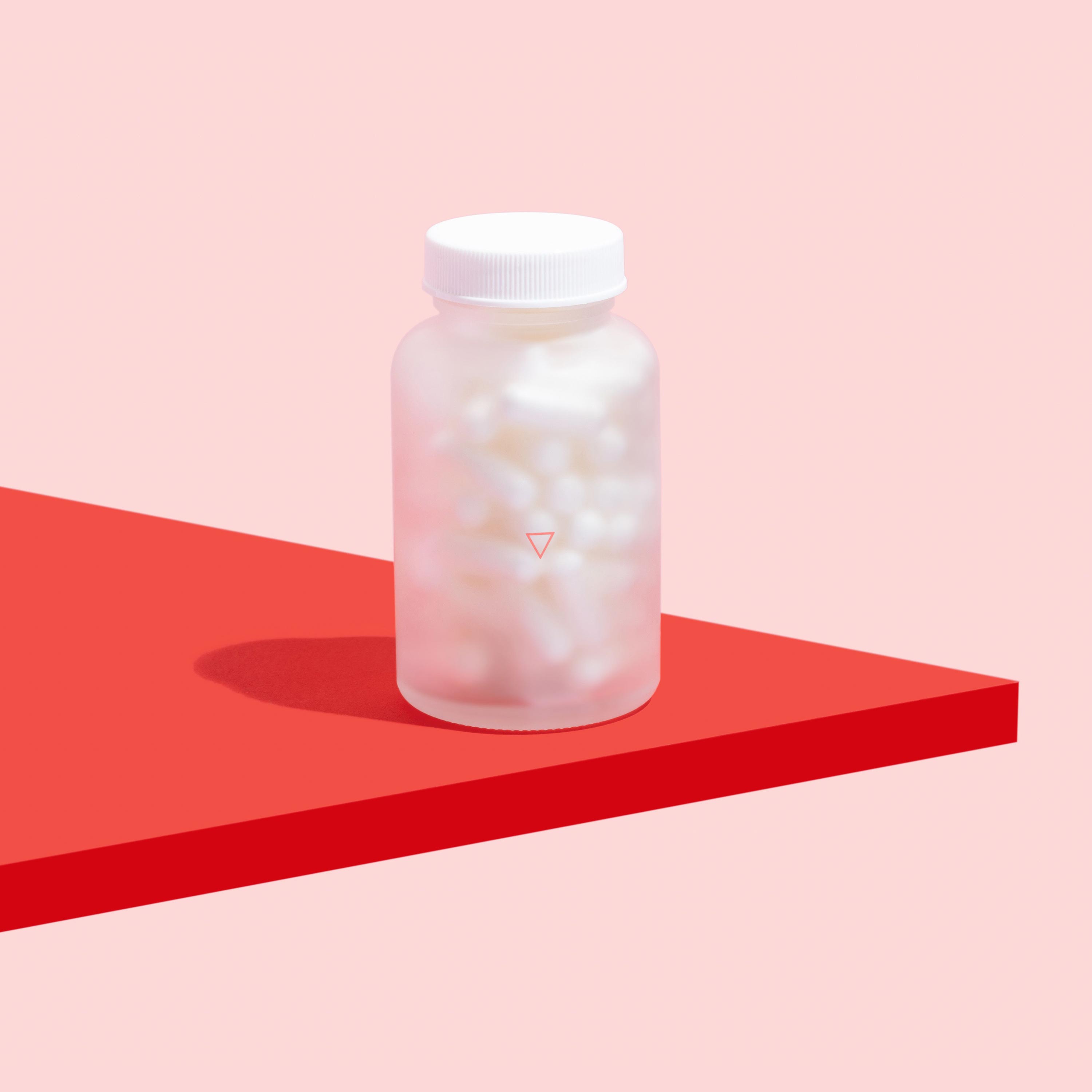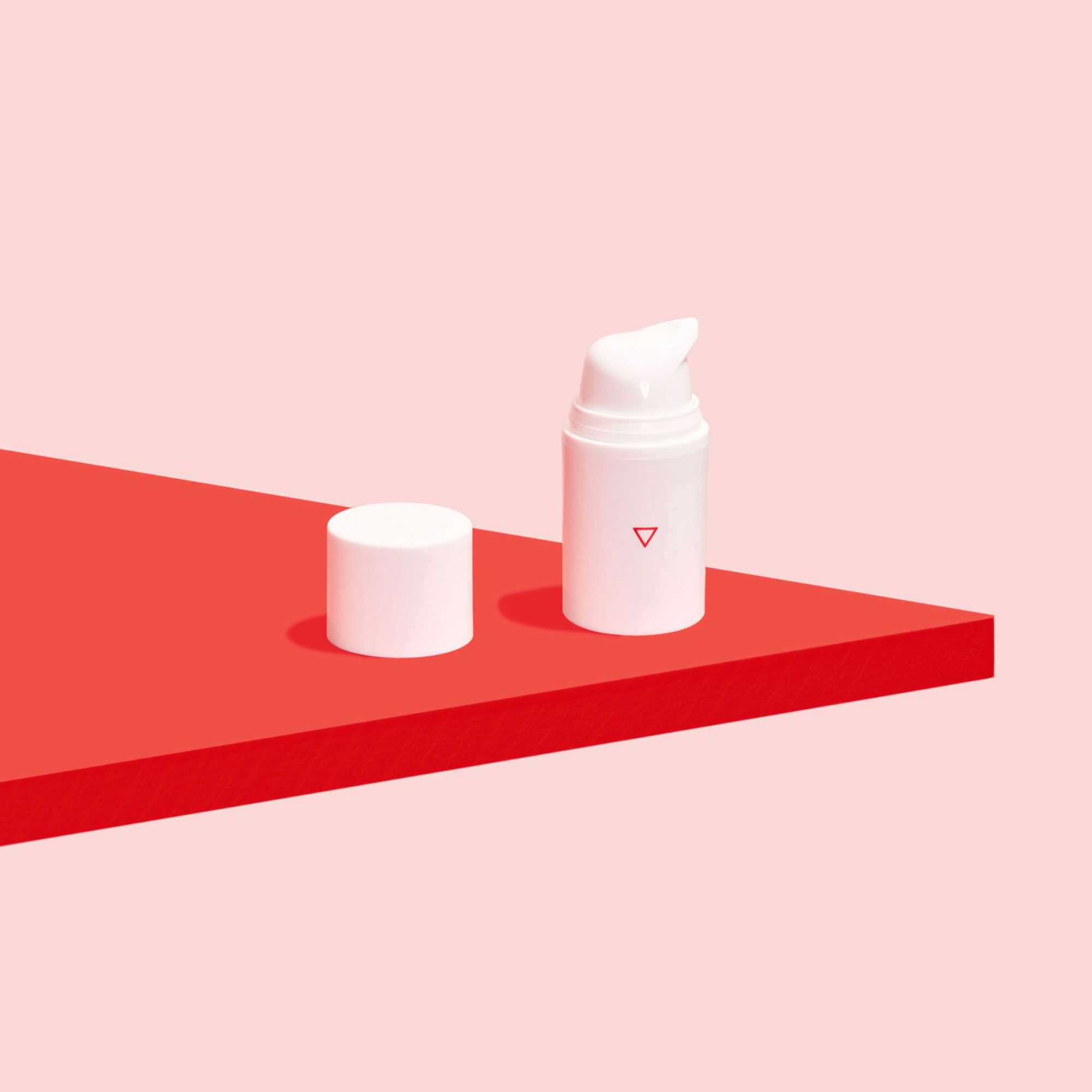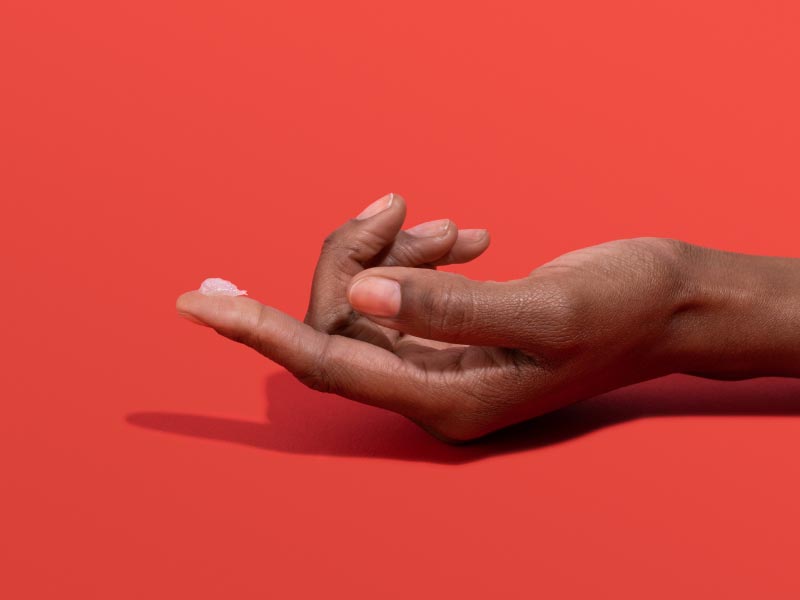
What You Didn’t Know
About Acyclovir for Herpes
Published on March 30, 2022
Updated on April 28, 2025
Written by Kathleen Morrison
Medically Reviewed by Andrea Sleeth WHNP-BC, MSCP
So, you’ve heard of Acyclovir. Maybe you’ve even used it before—those little tablets or that trusty cream that comes through during a cold sore or genital herpes flare-up. It’s mostly used to treat herpes simplex virus outbreaks, and it’s really good at what it does: making things way less intense and helping you get back to feeling like yourself.
But here’s what might surprise you: Acyclovir isn’t just a one-trick pony. While it doesn’t cure genital herpes or oral herpes (because, hey, viruses are complicated), it can help take the edge off outbreaks and make the whole thing way more manageable.
And bonus—Acyclovir cream can actually pull double (or triple) duty. Yep, it’s got a few other tricks up its sleeve. Let’s get into it.
What are Acyclovir Creams?
Acyclovir creams are a helpful prescription treatment for cold sores, fever blisters, and similar outbreaks. When applied directly to the affected area, they work to speed up the healing process and soothe symptoms like itching, burning, tingling, and pain.
While it can't completely eliminate the virus, regular use of acyclovir can make your outbreaks more manageable. It helps your immune system keep the virus in check, which means your body has an easier time handling it.
It’s a simple, effective way to give your body a little extra support when you need it most. Plus, it’s easy to use and discreet, making it a solid addition to your routine for managing outbreaks.
Wisp treatment options are available only after consultation with a licensed medical professional. You should consult with your healthcare provider before starting a new supplement or treatment regimen. Individual results may vary.
How does Topical Acyclovir work?
Topical Acyclovir is your go-to ally when dealing with herpes outbreaks, and it works by targeting the virus directly. Here’s how it helps:
- Slows down the virus: When applied to the affected area, Acyclovir reduces the herpes virus's ability to multiply, helping the outbreak stay more manageable.
- Reduces symptoms: It can soothe pain, itching, and burning associated with cold sores or genital herpes outbreaks.
- Stops the spread: Acyclovir can help keep the virus from spreading to other areas of your body, giving you more control over the situation.
- Works best early: The earlier you apply it at symptom onset (right when you feel that first tingle or see redness), the more effective it is in calming the outbreak.
- Not a cure: While it doesn’t eliminate the virus from your body, it helps you get through outbreaks with less discomfort and for a shorter time.
In short, it’s a powerful tool for when symptoms begin and for making outbreaks more bearable.
How long does it take for Acyclovir to work?
Acyclovir cream is usually pretty quick to start showing results, but how long it takes depends on a few factors.
Most people begin to feel relief within 1-2 days of applying it, especially if they start treatment right when they notice an outbreak beginning. The sooner you use it, the more effective it tends to be in shortening the duration and easing symptoms like pain, itching, and burning. However, it's important to remember that the virus is still in your system, so while the symptoms may ease quickly, the virus will stay dormant in your body.
Applying Acyclovir consistently during an outbreak helps keep things manageable and keeps symptoms from becoming more severe. Everyone’s body responds a little differently, so while some may feel a difference in just a couple of days, others might take a little longer.
Either way, sticking with your treatment plan will help you get through the outbreak as comfortably and quickly as possible.
How to use Acyclovir Creams
When you start using prescription Acyclovir cream for genital herpes or cold sores, it’s always a good idea to take a quick look at the patient information leaflet that comes with it. If you have any questions or something doesn’t quite make sense, your doctor is the perfect person to help clarify things.
To get the best results, apply the cream as soon as you notice the first signs of an outbreak. Gently rub it into the affected area, making sure to cover all of it, and if possible, use a glove or finger cot to avoid spreading anything to other areas of your body. Be sure to follow the directions your doctor gave you so it works its magic the right way.
Keep in mind that Acyclovir cream is for external use only. You’ll want to avoid putting it in your eyes, mouth, or nose. If you do accidentally get it in one of these spots, don’t stress—just rinse it off with plenty of water.
Lastly, Acyclovir isn’t something to use for longer than your doctor recommends, so be sure to stick to the prescribed schedule.
Four Surprising Uses for Acyclovir
Acyclovir is more than just your go-to for genital and cold sore outbreaks. It’s a multi-tasker that can help with a few other viral issues you might not expect.
Chickenpox
Did you know chickenpox is actually a type of herpes virus? Wild, right? If you’re dealing with chickenpox, Acyclovir can help make the infection a little more manageable. The key is to start the treatment within the first 24 hours of symptoms popping up.
While it’s proven to ease the symptoms and shorten how long you’re uncomfortable, it hasn’t been fully confirmed if Acyclovir helps with complications from chickenpox. Still, it’s a safe and trusted treatment to make your recovery smoother.
Shingles
If you’ve had chickenpox as a kid (or didn’t get vaccinated), there’s a chance the chickenpox virus can come back as shingles when you're older. The virus lays dormant in your nerves and can reactivate during times of stress or when your immune system is down.
That’s where Acyclovir comes in—if you catch it early, it can help calm things down and shorten the time you’re dealing with those painful, blistery outbreaks (typically on your torso or face). It’s most effective if taken right when the rash starts showing up.
Genital Herpes
Acyclovir’s got your back when it comes to managing genital herpes outbreaks. It’s super helpful in easing the severity and duration of an outbreak if you start it early. While it won’t get rid of the virus, it does help manage symptoms and can limit how much the virus spreads to other parts of your body.
Plus, it can also help cut down on the chances of sharing the virus with your partner. So, while it’s not a cure, it definitely makes things way more manageable.
Cold sores
Cold sores can be super annoying and uncomfortable, but Acyclovir cream to the rescue! Applying the cream directly to the cold sore can help ease the pain, itching, and burning.
It can also help shorten how long the cold sore lasts and help make sure the virus doesn’t spread to other areas. If you catch it early enough, you’ll be feeling better in no time.
Side Effects of Acyclovir creams
Acyclovir creams are generally well-tolerated, but like any medication, there can be a few things to watch out for. Most people don’t experience anything serious, but it’s good to be aware of what might pop up:
- Dry or cracked lips
- Burning or stinging sensation
- Flaky or irritated skin at the application site
These are typically mild and should go away once your skin gets used to the cream. However, if they stick around or get worse, it’s a good idea to check in with your pharmacist or doctor just to make sure everything’s okay.
Although it’s rare, some people can have a more serious allergic reaction. If you experience any of the following, seek medical attention right away:
- Swelling of the face, lips, or throat
- Difficulty breathing
- Severe rash or itching
Remember, serious side effects aren’t common, but it’s always better to be safe and have a professional take a look if you’re concerned. Your doctor or pharmacist is there to help, so don’t hesitate to reach out if something feels off!
Can you overdose on Acyclovir?
Let’s get one thing straight: Acyclovir creams are meant for external use only. That means no swallowing, no experimenting, and definitely no using it like lip gloss. While it’s amazing at calming down cold sores and helping your skin feel more like you again, swallowing it can be harmful—and in serious cases, it can lead to symptoms like difficulty breathing or loss of consciousness.
If you or someone else might have ingested Acyclovir cream and is feeling off, here’s what to do:
- Call emergency services (911 in the U.S.)
- Or contact your local Poison Control Center ASAP
- Don’t wait—getting help fast matters
Also, friendly reminder: this cream is prescribed just for you. Sharing it with someone else isn’t just a bad idea—it could spread a herpes infection or make things worse for them. Keep it personal!
You’re in charge of your own skin
Whether you’re managing cold sore symptoms, navigating a herpes diagnosis, or just exploring your options, knowing how Acyclovir works puts you in the driver’s seat. From creams that soothe and speed up healing to the confidence that comes with understanding your body, it’s all about taking care of yourself on your own terms—with zero shame, and lots of support.
A lot of folks deal with herpes-related skin issues, and it’s nothing to feel weird about. These conditions are super common, and they don’t define who you are. You deserve treatment that’s easy, affordable, and judgment-free.
Want fast, discreet care without the awkward waiting room? Wisp makes it easy to access prescription antiviral creams, herpes meds, and so much more—delivered straight to your door, or ready for same-day pharmacy pickup. It's care that fits your life, not the other way around.
Frequently Asked Questions (FAQ):
What should I do if I miss a dose of Acyclovir?
No stress—just apply it as soon as you remember. If it’s almost time for your next dose, it’s okay to skip the missed one. Just don’t double up.
Does Acyclovir interact with other medicines?
Topical Acyclovir usually plays nice with other medications, but if you’re using anything else on the same area, it’s always smart to check in with your doctor or pharmacist.
Things to avoid while taking Acyclovir?
Try not to get the cream in your mouth, nose, eyes, or genitals. Don’t share your tube (or lip balm or towels), and avoid touching sores unless you’ve just washed your hands. Also, skip any makeup or harsh skincare right over the treated area.
How do you know if Acyclovir is working?
You’ll usually feel less itching, tingling, or burning in a couple of days. The sore should start looking less inflamed and gradually clear up.
How long does Acyclovir take to heal sores?
Most cold sores or blisters start healing within 2 to 3 days, and are usually gone in about a week. Starting early gives it the best chance to do its thing.
This blog post is for informational and educational purposes only and should not be taken as professional advice. Always consult with a qualified professional before making any decisions based on the information provided here.

Valacyclovir & Acyclovir For HSV-2
Prescription antiviral pills used to prevent & treat outbreaks
Starting at $10.00/ month
Get Started
Acyclovir Cream for Genital Herpes | HSV-2
Prescription antiviral cream used to decrease outbreak healing time.
Starting at $30.00
Get Started

